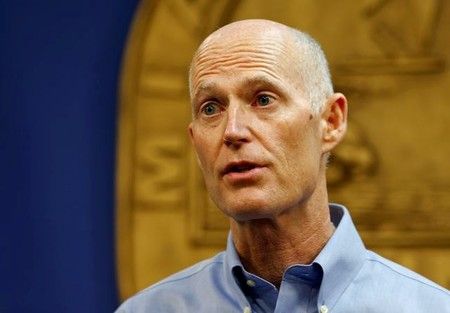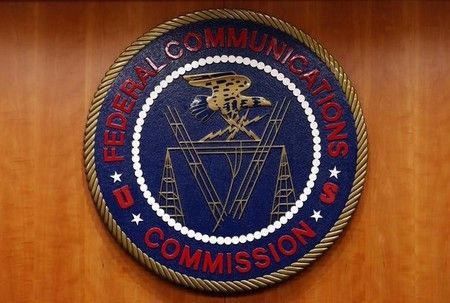Advertisement
As First 100 Days Nears, President Trump Approval Rating at 32 Percent With Young Americans, Harvard Poll Finds
By Jason Owen
7 min read
Advertisement - Continue reading below

CAMBRIDGE, Mass., April 25, 2017 /PRNewswire-USNewswire/ — As the first 100 days of the administration nears, 32 percent of 18 to 29 year old Americans approve of President Donald Trump’s job performance overall, according to a new national poll by Harvard Kennedy School’s Institute of Politics (IOP).
The IOP’s 33rd major poll release since 2000 also shows that young Americans’ approval of President Trump’s handling of the economy is at 37 percent. Furthermore on other issues, the poll finds his approval of dealing with ISIS at 33 percent, health care at 30 percent, climate change at 28 percent and performance on race relations at 27 percent.
“While we spend a lot of time talking about what divides us, younger millennials are seeking leaders who will unite us. This is both good government and good politics, and it is the overarching message from our last year of polling, town meetings and conversations with millennials from across the country,” said John Della Volpe, Polling Director at Harvard Kennedy School’s Institute of Politics.
A detailed report on the poll’s findings is available online at http://bit.ly/IOPSpring17Poll.
The KnowledgePanel® survey of 2,654 18- to 29-year-old U.S. citizens with a margin of error of +/– 2.7 percentage points (95 percent confidence level) conducted with the Government and Academic Research team of GfK for the IOP between March 10 and 24 finds:
Politics of Today
- Young Americans Committed to Help Unite America.59 percent of young Americans agree that they want to do what they can to help unite and not further divide the country. The commitment is consistent across age cohorts (60 percent: 18-24; 58 percent: 25-29), party identification (62 percent: Democrat; 61 percent: Republican; 57 percent: Independent), gender (56 percent: male; 62 percent: female), race (60 percent: white; 55 percent: black; 58 percent: Hispanic) and geography (62 percent: red states; 57 percent: blue states: 57 percent purple states).
- While Politics is More Relevant and Tangible to Young Millennials, Idea of Working in Public Service is Becoming Less Appealing. Compared to five years ago, today more young Americans believe that politics is relevant to their lives (2012: 40 percent relevant, 23 percent not relevant; 2017: 47 percent relevant, 16 percent not relevant; net difference: 14 points) and is able to produce tangible results (2012: 27 percent tangible results, 29 percent rarely tangible results; 2017: 33 percent tangible results, 22 percent rarely tangible results; net difference: 13 points). But today, fewer want to work in some form of public service. In 2012, 31 percent of 18 to 29 year olds agreed that public service is appealing (29 percent: not appealing); today the number has fallen to 25 percent (35 percent: not appealing).
- Voting, Discussion and Volunteering Viewed as the Three Most Effective Ways to Produce Change. 74 percent of young Americans believe that voting is the one of the most effective ways to produce change, with younger millennials more likely to feel this way (77 percent: 18-24; 71 percent: 25-29). Respondents also identify talking about important issues (53 percent) and volunteering for community service (41 percent) as ways to produce change. These three actions are considered more effective than other actions like contacting your representative (39 percent), running for office (31 percent) or protesting (16 percent).
Elements of President Trump’s Agenda
- Three-in-Five Believe President Trump’s Plan to End Unfair Trade Practices Will Make America Better. When asked about a set of President Trump’s proposed policies using the administration’s policy language, 60 percent of young Americans say that “‘cracking down’ on countries’ illegal and unfair trade practices that hurt American workers” would make America better, while 13 percent respond that it would make America worse. Young Americans from each party view ending unfair trade practices favorably: 85 percent of Republicans believe it would make America better, along with 50 percent of Democrats and 58 percent of Independents. When asked about the policy’s impact on them and their families if implemented, 37 percent indicate it would have a positive impact and 14 percent say it would have a negative impact.
- By 2:1, Young Americans Believe Empowering Law Enforcement Will Make America Better, With Lower Levels of Support for Health Care and Immigration Policies.A plurality of young Americans support “ending the ‘anti-police’ atmosphere in America and empowering law enforcement” (48 percent: “make America better”; 24 percent: “make America worse”). There is less support for “repealing and replacing” the Affordable Care Act (33 percent: “make America better”; 45 percent: “make America worse”), for “temporarily banning all refugees from coming into the U.S. and temporarily banning issuance of new visas from 6 predominately Muslim countries in the Middle East” (28 percent: “make America better”; 48 percent: “make America worse”), and for “building a wall on the U.S. Mexico border” (23 percent: “make America better”; 50 percent: “make America worse”).
Views of the Media, Fake News and Twitter
- Young Americans Believe Nearly Half of Facebook Feed To Be “Fake News.”Overall, 81 percent of 18 to 29 year olds have accounts on Facebook, 56 percent on Instagram, 53 percent on Snapchat and 42 percent on Twitter. Facebook users believe that nearly half (49 percent) of the news appearing on their Facebook feed is “fake news.” Republicans believe there is more (56 percent) “fake news” in their feed, compared to Democrats (42 percent) and Independents (51 percent).
- Regardless of Party, Most Believe President Trump’s Twitter Use is Not Appropriate.When asked, “Overall, do you believe President Trump’s use of Twitter is mostly appropriate, or mostly inappropriate for the President of the United States,” 68 percent of young Americans say that the President’s use of Twitter is mostly not appropriate for the office. Nearly 9-in-10 Democrats do not believe it is appropriate (86 percent: “not appropriate”; 3 percent: “appropriate”), as do 64 percent of Independents (12 percent: “appropriate”) and 47 percent of Republicans (23 percent: “appropriate”).
- 10 percent Give Mainstream Media an “A” for Coverage of President Trump During First 100 Days.As the first 100 days of President Trump’s administration comes to a close, 18 to 29 year olds graded both President Trump’s performance and the mainstream media’s coverage of the president with more F’s than A’s. 10 percent gave the media an A, 22 percent: B, 26 percent: C, 14 percent: D and 26 percent: F. When also asked to rate the president on the same scale, 10 percent gave him an A, 18 percent: B, 14 percent: C, 15 percent: D and 41 percent: F.
Party Affiliation and the American Bubble
- Young Democrats and Republicans Have Relationships With Different Groups of People. To begin to understand the communities and ties that help shape the attitudes of young voters, the poll includes young Americans’ relationships with people from different communities. Overall, 62 percent of young Americans have a close relationship with aHillary Clinton supporter, while 55 percent say the same of a Trump supporter. 60 percent have a close relationship with a gun owner, 54 percent with someone who is LGBTQ, 38 percent with someone who is a Born Again or Evangelical Christian, 31 percent a veteran of the Iraq or Afghanistan wars, 28 percent a current or recovering drug addict, 23 percent a Muslim, and 22 percent an undocumented immigrant.When comparing Democrats’ and Republicans’ close relationships, Republicans are much more likely to have close relationships with gun owners (80 percent: Republican; 49 percent: Democrat), with Trump voters (85 percent: Republican; 39 percent: Democrat), with people who are Born Again or Evangelical (55 percent: Republican; 36 percent: Democrat), with police officers (53 percent: Republican; 28 percent Democrat), with truck drivers (45 percent: Republican; 30 percent: Democrat), with a veteran of Iraq or Afghanistan (43 percent: Republican; 26 percent; Democrat), with a drug addict or someone in recovery (34 percent: Republican; 26 percent: Democrat) and with a millionaire (28 percent: Republican; 14 percent: Democrat).
Democrats are more likely to have close relationships with Clinton voters (75 percent: Democrat; 55 percent: Republican), with people who are LGBTQ (61 percent: Democrat; 49 percent: Republican), with Muslims (28 percent: Democrat; 22 percent: Republican) and with Ivy League students or graduates (26 percent: Democrat; 22 percent: Republican). There are no statistical differences by party on those who have a close relationship with an undocumented immigrant.
- Near Majority Consider Themselves To Be Aligned with Democratic Party. 48 percent of those polled consider themselves to be a strong (20 percent) or not very strong Democrat (19 percent), or to lean Democrat (9 percent). Among the most predictive attributes for Democrats are: non-white (60 percent), believing that basic health insurance is a right (59 percent) and not knowing a gun owner (51 percent). 28 percent of young Americans align with the Republican party (12 percent: “strong”; 10 percent: “not very strong”; 6 percent: “lean Republican”). Among Republicans, the most predictive attributes are: white (79 percent), disagreeing that basic health insurance is a right (47 percent) and knowing a gun owner (80 percent). 22 percent of 18 to 29 year olds are Independent.
Methodology
The goal of the project was to collect 2,650 completed interviews with young Americans between 18- and 29-years old. The main sample data collection took place from March 10 through 24. A small pretest was conducted prior to the main survey to examine the accuracy of the data and the length of the interview.
Five thousand, one hundred and twenty nine (5,129) KnowledgePanel members were assigned to the study. The cooperation rate was 52 percent, which resulted in 2,654 completed interviews included in this report (after data cleaning). One hundred and eight (108) interviews were conducted in Spanish with the remainder done in English. The web-enabled KnowledgePanel® is a probability-based panel designed to be representative of the U.S. population. Initially, participants are chosen scientifically by a random selection of telephone numbers and residential addresses. Persons in selected households are then invited by telephone or by mail to participate in the web-enabled KnowledgePanel®. For those who agree to participate, but do not already have Internet access, GfK provides a laptop and ISP connection at no cost. People who already have computers and Internet service are permitted to participate using their own equipment. Panelists then receive unique log-in information for accessing surveys online, and are sent e- mails throughout each month inviting them to participate in research. More technical information is available at http://www.knowledgenetworks.com/ganp/reviewer-info.html and by request to the IOP.
Our mission at Harvard Kennedy School’s Institute of Politics (IOP) is to create the future of politics and public service every day, inspiring undergraduates to lead lives of purpose by committing themselves to the practice of politics and governing, and to public service and the countless opportunities to serve at home and around the world. The IOP was established in 1966 as a memorial to President John F. Kennedy. More information is available online at www.iop.harvard.edu/.
SOURCE Harvard Kennedy School’s Institute of Politics (IOP)
Advertisement - Continue reading below









